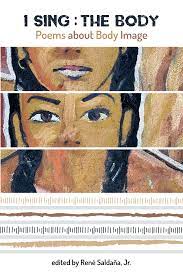So, two years have passed since my last post, but what wonderful two years they've been! For one, I've been promoted to Professor, the pinnacle for an academic. I've documented this experience, which has not been a clean one, in a book chapter I co-authored with former student, now-colleague Dr. Elizabeth Stewart. The title of our chapter is titled "When a Single Song Just Won't Do: The Mixtape as Research Methodology" found in DeHart & Hash's Arts-Based Research Across Visual Methodology: Expanding Visual Epistemology (Routledge, 2023). But I've made it to this level and trying to make the best of it. If folks on the path think it's about publishing or perishing on the way up, it doesn't end with promotion and tenure or promotion to full. The expectation to keep publishing only increases. We become, in a sense, show windows: national visibility and recognition become paramount. So we keep writing and publishing. What changes is that I finally get the opportunity to write what makes me happy. Sure, in a college of education, I'm still a social scientist, or what passes, very loosely for one, so I write up my research.
But now, I'm experimenting with arts-based research and writing. Two titles forthcoming in this vein, both poetry collections. The first is called Eventually, Inevitably: My Writing Life in Verse (Arte Público Press/Piñata Books, 2023), pictured here:
Originally slated for an October print date, it will be out toward the end of December now. So a book for the new year? The book captures the story or stories of how I grew into the writing business, dating back decades prior to my own birth, if you can believe it. But mostly, it's autobiographical poems about writing and how it is all around us, if we're paying attention. One could argue that this is not an arts-based research title since I didn't originally set out to write it as such; but it is non-fiction, and it recounts with some research pieces, a piece of my life and my learning. It's not a hill I would die on, though.
The next book is very much an arts-based research project. It is another book of poems called Strangers in Our Own Land: A Poetic Autoethnography (FlowerSong, 2024). Here's a link to the brilliant independent press run by Edward Vidaurre in case you want to support it financially and or sign up for their newsletter (https://www.flowersongpress.com/). Not listed yet, my book tells of my fears of deportation growing up in the Rio Grande Valley, a very visceral fear I experienced every time we drove to San Antonio or Houston to visit family and had to verify our U.S. citizenship at the Checkpoint (including this last Thanksgiving traveling with my two youngest kids, telling them a mile or two away from the Border Patrol checkpoint in Falfurrias to answer "Yessir" to the agent when he asked if we were citizens; my son later told me he was about to say "Yessir" when he changed his mind last second and said instead, "Yes ma'am."). I also write about how perhaps my fear, though real, was nothing compared to the fear illegal immigrants feel as they make the trek here, and the other, more real fear of being stuck in the trailer of an 18-wheeled truck in the Texas heat, no A/C, the oxygen running out, in utter darkness listening to what very well could be the last breath of that boy who took a spot next to you after climbing in, the dream turned nightmare.
I also published my 6th and last installment in the Mickey Rangel Mystery series. This one is titled A Case is Still a Case (Arte Publico Press/Piñata Books, 2023) , and like the other five, this one is bilingual in the classic flip format: you can never go wrong on what language you choose to read it in as there is never a language designated as the primary one. If you don't want to read it in English today, simply flip it upside down and backwards, and you are now reading it in Spanish. In this last story, online-certified PI Mickey Rangel has to come to grips with the fact that detective work is not gender-specific. It's a job that girls can do, too, and sometimes a job they can do better. I also found homes for other academic pieces. Following is a list:
"The Many Ways of Sources: Giving Voice to the Research Data" in Rigorous Poetics: Poetic Inquiry in Action Across the Hemispheres. Willmington DE: Vernon Press. (2024).
"Degollado’s THROW: Nepantla: New Name, New Self" in Malo and Hill (Eds.) Oxford Handbook of Young Adult Literature. New York NY: Oxford University Press. (2024).
With Stewart, E. "In Search of the Aesthetic: An Arts-based Approach to Writing Up Our Research" in Lesley, Saldaña, Smit, and Jung (Eds.) Liminal Spaces of Writing in Adolescent and Adult Education. Lanham, MD: Lexington Books. (2022).
With Stewart, E., Lesley, M., and Beach, W. "Perspectives in Cultivating a Qualitative Researcher’s Identity" in A. Zimmerman (Ed.) Developing Students’ Scholarly Dispositions in Higher Education. Hershey, PA: IGI Global. (2022).
I also published the following poems:
"Scrubbed of My Own History." English Journal. (2023).
Lastly, I collaborated with singer-songwriter and educator Jordan McEwen on a DocuPoetry research-art project called The Story of Boxing in WTX where we interviewed a few folks in the business and took photos, marrying the visual with the text to create some riveting visual poems.
All in all, a busy and productive couple of years. And now, with more time to dedicate to the old blog.




